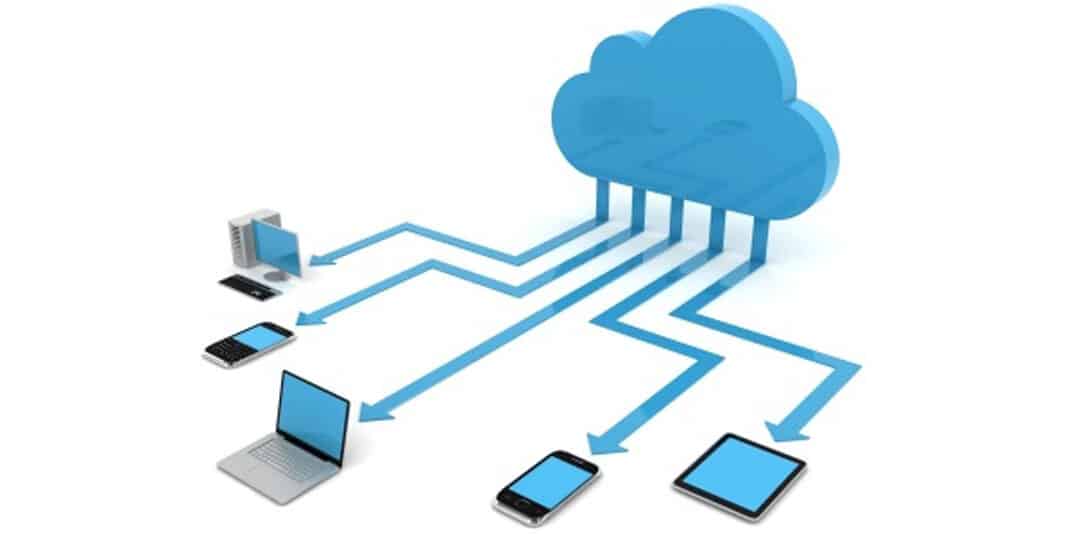by DavidSpratt | Aug 2, 2012 | ICT
 Who owns your data if it resides in the cloud somewhere? Let’s say that you are using a cloud based CRM system and the company delivering it goes into receivership. What happens to your data? Can the receiver sell it to a competitor? Can they even demand that you buy it back from them under threat of refusal to give you access to it? Even worse (if that’s possible) they could just decide to blank the disk storage and sell it for scrap to recover funds.
Who owns your data if it resides in the cloud somewhere? Let’s say that you are using a cloud based CRM system and the company delivering it goes into receivership. What happens to your data? Can the receiver sell it to a competitor? Can they even demand that you buy it back from them under threat of refusal to give you access to it? Even worse (if that’s possible) they could just decide to blank the disk storage and sell it for scrap to recover funds.
Microsoft’s announcement last week that it will collaborate with NZ hosting company Revera to provide its public cloud systems on Revera’s private cloud infrastructure goes a long way towards addressing this issue for New Zealand businesses
The alliance will create a hybrid cloud service that Revera has called ‘Homeland Collaboration’. In real terms what this means is that cloud computing services – originally developed for the retail/consumer market driven mainly by US companies – are now more aligned to the needs of the New Zealand businesses adopting them.
Data sovereignty relates to the Laws under which cloud services operate. These Laws are usually focused on the physical location of the servers that deliver the service. Prior to this new hybrid cloud service, a New Zealand user could end up subject to US Law or the Law of one of its States in the event of any dispute. This is potentially confusing, complex and very, very expensive. Put simply, the hybrid cloud service brings New Zealand businesses back under the jurisdiction of New Zealand law.
Hat’s off to Revera – a fantastic example of a Kiwi company seeing the gap and taking the initiative to fill it – to the benefit of all. But don’t be lulled into a false sense of security, data ownership is still covered by the contract in place with the service provider (eg Microsoft, Rackspace or Salesforce.com) so READ THE SMALLPRINT carefully and make sure that you know how they deal with data ownership before you sign up.
by DavidSpratt | Jul 16, 2012 | ICT
 In the 36 hours since Vodafone announced its intention to acquire TelstraClear there has been a flurry of conflicting opinions regarding the potential impact on the NZ telecoms market. Pundits’ opinion on the consumer impact of this move has ranged from there being a ‘limited’ impact to predicted price decreases and Consumer NZ’s view that a beefed up Vodafone offering could actually act to drive Telecom’s prices up.
In the 36 hours since Vodafone announced its intention to acquire TelstraClear there has been a flurry of conflicting opinions regarding the potential impact on the NZ telecoms market. Pundits’ opinion on the consumer impact of this move has ranged from there being a ‘limited’ impact to predicted price decreases and Consumer NZ’s view that a beefed up Vodafone offering could actually act to drive Telecom’s prices up.
So, while the decision whether or not to let the sale go ahead sits with the New Zealand Commerce Commission, Overseas Investment Office and the Ministry of Business, Innovation and Employment – it’s worth considering the other impacts that this potential duopoly could have on our telecoms market?
What does it mean for smaller niche players trying to break into emerging markets? How can they compete with a couple of monsters who can bundle services in a way that a niche player’s offering can’t possibly match? This is how Microsoft destroyed web browser providers in the 1990’s (whatever happened to Netscape and its Navigator product?)
Having another full service provider in the market could certainly make things simpler for the consumer. It’s convenient to get all your bills from one supplier, have one customer service department to deal with and have one other competitive price offer to benchmark your bills against.
However, if we step back and look at it from a wider perspective, what impact will this acquisition have on the speed of new products and innovation in the NZ market? A market that’s a cosy duopoly with no agile innovators nipping at the big players’ heels could become sluggish and complacent.
A final thought. Now that Vodafone has such a powerful set of services and all the cash that comes with being a global multinational – will we come to regret the concerted efforts by Government to clip Telecom’s wings?
by DavidSpratt | Jun 7, 2012 | ICT
 Zespri has just bucked the trend. At a time when New Zealand companies of all sizes are being hit by rising fixed costs and sinking profits, the kiwi fruit marketing business has managed to push their phone, data and networking costs down by almost a third. But surprisingly, this cost reduction hasn’t been the best outcome of their recent contract negotiations according to Zespri Information Systems Manager, Andrew Goodin. Lynn Wrightson goes down the line to find out what could possibly top that?
Zespri has just bucked the trend. At a time when New Zealand companies of all sizes are being hit by rising fixed costs and sinking profits, the kiwi fruit marketing business has managed to push their phone, data and networking costs down by almost a third. But surprisingly, this cost reduction hasn’t been the best outcome of their recent contract negotiations according to Zespri Information Systems Manager, Andrew Goodin. Lynn Wrightson goes down the line to find out what could possibly top that?
Running a global supply chain that markets and delivers New Zealand’s flagship fruit to four corners of the planet all year round is a complicated business and one that relies heavily on the latest telecommunications solutions to connect growers to their markets.
“The big challenge for us was to find a way to improve our use of ICT while managing the associated costs,” said Andrew Goodin. “The technological environment moves so quickly that plans operating well for us three years ago were no longer valid by the time we hit the contract expiry date. Both the technology available and the way in which we were using it had changed.”
“When our contract came up for renewal, we needed to gain a clear understanding around how and why our telecoms usage patterns had changed. We also needed to question and analyse what benefit that change was bringing to our growers. As a management team, we can’t make sound decisions without that sort of detailed information.”
Due to the complexity of Zespri’s requirements – which include international networking, mobile phone and mobile data worth around $2.4 million over a three year period – getting the structure and scope of the RFP right was critical. The company needed to identify the Cinderella among its supply options. There was only one glass slipper – the fit had to be right.
“Procurement is a specialist discipline,” said Andrew Goodin. “Having an in-depth understanding of all the different contract terms was crucial when we were making this very strategic decision. Knowing what break points to embed in the final agreement could prevent us from getting locked into a contract that we would quickly out-grow. We needed to factor in what the penalties would be if we had to change the terms of our contract before it was due for re-negotiation.” (more…)

by DavidSpratt | Apr 23, 2012 | ICT
In the final part in a series of three articles on cloud computing, David Spratt, ICT specialist at Total Utilities Management Group (TUMG) answers the question: Does cloud computing genuinely offer benefits to New Zealand businesses or is it another example of ICT answers looking for a problem?
Cloud services (especially Software as a Service) is an ICT revolution unfolding before our eyes. It is crucial that all businesses plan and execute change in order to take advantage of the rise of web based services if they are to continue to be competitive.
A bold statement but one which I believe is backed up by four recent reports around global online buying behaviour. Although it may not commonly be recognised as such, online shopping is the cloud service with which we are all most familiar.
- A recent Pew Centre report noted that, for the first time, more consumers owned smart phones than ordinary mobiles in the USA. This shows that even if not everyone is using their smart phones to access web services they are certainly now able to do so.
- Forbes noted that the last Thanksgiving sales in the USA (our equivalent of the Boxing Day madness) generated more revenue from online sales than from those at retail stores
- David Jones, the major department store operator in Australia, announced major, permanent reductions in the price of all its designer brand offerings because its sales were being so severely eroded by the impact of on line shopping.
- A major camera store operator in Melbourne now charges $50 to customers wanting to try cameras in store before buying them. Why? Because these customers were now trying in store and buying on line!
The most common question I am asked by executives across all industries is ‘How do I position myself for cloud services and what are the issues that I face when I do so?’ These same executives are often faced with contradictory feedback from various departments some of whom are desperate to take advantage of the latest new software offerings available in the cloud (Software as a Service) while others take a more conservative approach in the face of potential expense and complex changes to an existing system. (more…)

by DavidSpratt | Apr 23, 2012 | ICT
Cloud services have emerged as a genuine threat to established hardware and software providers as well as to the livelihoods of the many thousands of IT professionals who have made their living selling and supporting these products over the last twenty or more years.
This threat makes ICT investment decisions by businesses particularly challenging as we are encouraged by one group to stick with the tried and true and by another to throw away the old and bring in the new.
This three part series assesses the importance of cloud services to business by looking at whether a particular service reduces costs and/or improves businesses performance when compared to the existing way of doing things.
Part One of this series addressed Infrastructure as a Service – where traditional ICT services such as storage and processing power are provided.
Part Two addresses Software as a Service – where organisations access software tools via the internet.
Software as a Service represents the single biggest game changer in business IT since the personal computer made mainframes and mini computers a part of history. (more…)
 Who owns your data if it resides in the cloud somewhere? Let’s say that you are using a cloud based CRM system and the company delivering it goes into receivership. What happens to your data? Can the receiver sell it to a competitor? Can they even demand that you buy it back from them under threat of refusal to give you access to it? Even worse (if that’s possible) they could just decide to blank the disk storage and sell it for scrap to recover funds.
Who owns your data if it resides in the cloud somewhere? Let’s say that you are using a cloud based CRM system and the company delivering it goes into receivership. What happens to your data? Can the receiver sell it to a competitor? Can they even demand that you buy it back from them under threat of refusal to give you access to it? Even worse (if that’s possible) they could just decide to blank the disk storage and sell it for scrap to recover funds.



